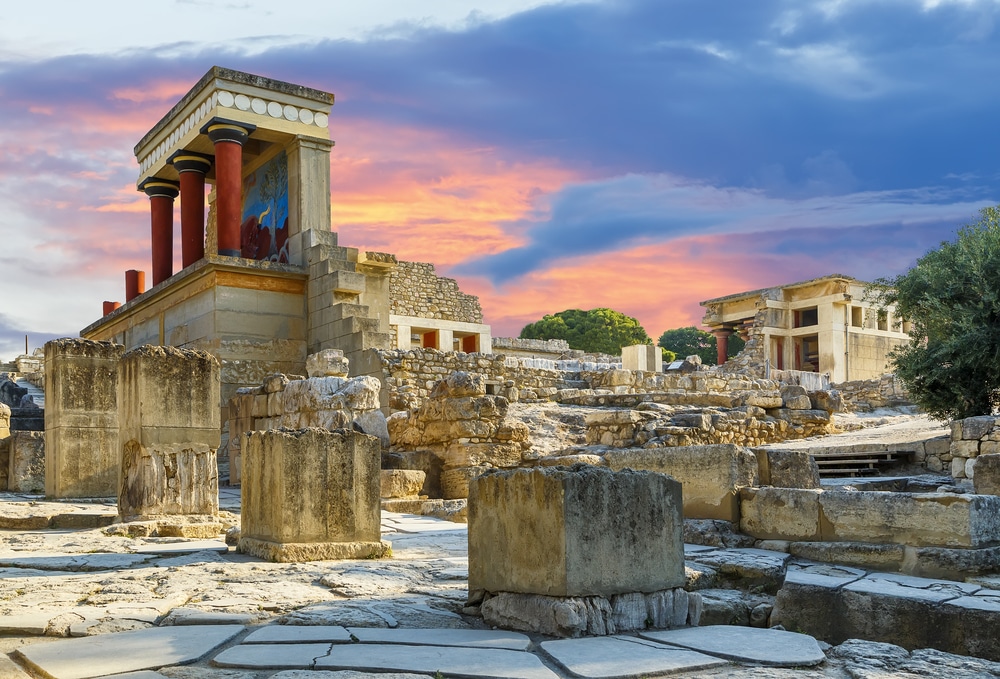Excerpt from the novel, Labyrinthine Ways
By Aurelia
“I know that the incident is known as the Kandanoleon Wedding,” Manolis begins, “and that a Cretan man by the name of George Kandanoleon arranged for the marriage of his son, Petros to a Venetian Princess named Sofia, daughter of Francesco Damolino, a Venetian Lord. I know that the wedding happened, that about fifty Venetians attended and hundreds of Cretans were guests of the bridegroom. I know that almost everyone was drunk by sunset, most of the guests fell asleep, and that is when the attack occurred.”
“The rocket went up above Chania at sunset,” Dimitrios explains, “and this was the signal that the Venetian governor was sending in one-hundred and fifty horsemen and seventeen hundred foot soldiers, according to Xan Fielding’s account in his book The Stronghold.”
“Does Fielding give a full account of the incident with explanations about why it happened?” Manolis asks.
“He gives a full account,” Lukas responds, “but he is also clear that no one knows why Kandanoleon, the Cretan, proposed the marriage of his son to the Venetian Princess. He says some historians have accused him of treachery, but Fielding found nothing to substantiate that. Fielding says his research uncovered nothing about the man’s character or his motivations. He says what we have however, are facts.”
“And besides what you have told me, the facts are?” Manolis prompts.
Dimitrios explains: “The facts are that a slaughter took place after the wedding. That night the Cretans were bound hand and foot; they were too drunk to resist and met their fate at daybreak. The Venetian Lord himself, the father of the bride, hung Petros Kandanoleon, the bridegroom and one of the young brothers. Others were shot and hanged on nearby trees and those who remained were divided into four groups, marched away in chains, and hung in four separate locations.”
“That is taking the thirst for revenge to the extreme,” Manolis comments.
“There is much more,” Dimitrios says, “you finish the story Andreas.”
Andreas begins: “Fielding explains that the only thing that would satisfy the Venetians for what they perceived as the indignity of a Cretan asking for the hand of a Venetian Princess was to annihilate the rest of the population.”
“Oh no,” Manoli exclaims, “the entire population of the Village?”
“Yes,” Andreas continues, “and to do this, according to Fielding, they needed the endorsement and help of the Senate at Venice. This is where that bastard Cavalli comes in. He was what was called the Proveditor, someone who reported directly to Venice. He ordered the entire Village burned, sent a dozen priests to the gallows, disemboweled four pregnant women, confiscated all property, and put a price on the heads of all who remained.”
“What was the price?” Manoli asks.
“Shall I tell him?” Andreas asks Manoussos.
“You have come this far, tell him now the horror of what happened next,” Manoussos responds.
“Do you want to tell this part, Costis?” Andreas asks.
“You must think I am ghoulish, but yes, I will tell the rest,” Costis says. He begins, “Cavalli said he would pardon any man who brought to him the head of his father, brother, cousin or nephew.”
“Oh god,” Manolis says, turning pale.
“And guess what,” Costis says. “Many brought him these grotesque blood offerings.”
“Fielding says even the Venetians were moved to compassion by the sight of men coming, carrying the heads of their relatives in the hopes of gaining pardons,” Dimitrios says.
“That is absolutely grotesque,” Manoli says. Then he asks, “Is this story true?”
“It is as true,” Dimitrios says, “as the river of Cretan blood that flowed through our land. We must never forget it.”
________________
Aurelia is a contributing writer to Hellenic News of America. She is also the author of two novels, A Lone Red Apple, set on Mykonos, and Labyrinthine Ways, a story unfolding o Crete. Her novels may be purchased on Amazon or at Cosmos Publishing. To reach Cosmos, send an email to [email protected].







